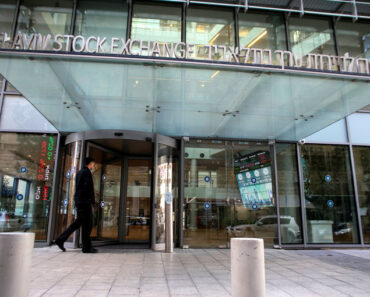This post was originally published on this site
 © Reuters. FILE PHOTO: Japan’s SoftBank Group Corp Chief Executive Masayoshi Son attends a news conference in Tokyo
© Reuters. FILE PHOTO: Japan’s SoftBank Group Corp Chief Executive Masayoshi Son attends a news conference in TokyoBy Sam Nussey
TOKYO (Reuters) – SoftBank Group Corp and its founder Masayoshi Son face a day of reckoning on Wednesday when the investment juggernaut is likely to post weak quarterly results, hit by hefty falls in the valuation of some of its biggest tech bets.
SoftBank has come under renewed investor scrutiny after it was forced to bail out one of its best known portfolio companies – the cash-burning, office-sharing firm WeWork – for $10 billion.
That has deepened concern about Son’s strategy of pouring billions of dollars into unproven, money-losing startups at a time it is getting squeezed by a sell-off in most of its listed bets.
Uber Technologies (NYSE:) Inc posted on Monday a wide quarterly loss, sending its shares sliding in after-hours trading. SoftBank’s $100 billion Vision Fund has a $7.7 billion investment in the U.S. ride-hailing firm.
SoftBank’s quarterly results come at a crucial time for Son, when he is trying to raise capital for a successor to the Saudi Arabia-backed Vision Fund.
SoftBank is expected to post an operating loss of 48 billion yen ($442 million) for the July-September quarter on Wednesday, according to the average forecast of four analyst estimates compiled by Refinitiv.
That would be its first quarterly loss in 14 years, Refinitiv data shows, and compares with an operating profit of 706 billion yen a year earlier.
SoftBank has delivered multiple quarters of sector-beating gains driven by internal revaluations of tech bets by the Vision Fund, which had its first major close in May 2017.
Analysts estimates vary widely, in part because SoftBank provides little detail on how it accounts for those gains or losses on its books.
A further lack of disclosure over valuations on Wednesday would “risk losing the trust of investors,” said Amir Anvarzadeh, market strategist at Asymmetric Advisors.
Given its falling share price – down around 30% since July – the conglomerate may unveil a share buyback of around 500 billion yen to try and stem the slide, Anvarzadeh said. SoftBank announced a 600 billion yen buyback in February.
UNUSUAL STEP
Investors will be looking closely at how SoftBank accounts for the value of its stake in WeWork, into which it has poured $13 billion to take a majority stake. WeWork was valued by SoftBank as high as $47 billion as recently as January, but is currently valued at just $8 billion.
The Japanese company is expected to announce on Wednesday a writedown of at least $5 billion due to a slump in values of WeWork and some other top holdings, Bloomberg reported late last month.
SoftBank has taken the unusual step of structuring the bailout to avoid having to consolidate WeWork on its books, despite taking an 80% stake, reducing its disclosure requirements as it tries to avoid liability for the startup’s onerous lease obligations.
Dan Baker, analyst at Morningstar, said he is marking the value of WeWork at zero until SoftBank’s restructuring has demonstrated a clear path to profitability.
SoftBank said last week it will post a $2.6 billion gain on the value of its stake in Son’s most acclaimed tech bet, Alibaba (NYSE:) Group Holding.
With the Vision Fund facing headwinds, sellside analysts are emphasizing the value of other parts of SoftBank’s portfolio, including telcos SoftBank Corp, which on Tuesday reported a 9% rise in second quarter profit, and Sprint.
Sprint has been struggling to close its $26 billion merger with T-Mobile due to legal hurdles, in a deal which if successful will remove the telco’s debt from SoftBank’s highly leveraged balance sheet.
SoftBank also owns chip designer Arm, for which Son paid a large premium in a $32 billion deal in 2016, banking the company, which is dominant in the mobile sector, could repeat its success in nascent sectors where it lacks critical mass.
Arm, which under SoftBank ownership has become money losing, plans to return to the public markets by 2023.



